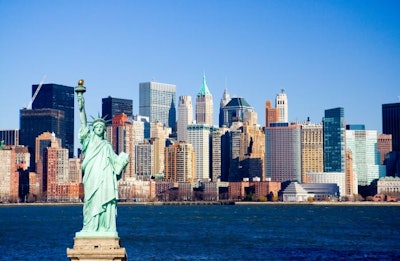
The New York City Council on October 30 approved a measure that would ban the sale of foie gras in the city.
The ban, which received “yes” votes from 42 council members, was proposed over animal welfare concerns. The ban will take effect in 2022 and is expected to affect an estimated 1,000 restaurants in the city that serve the dish, reported the New York Times.
The bill was sponsored by Manhattan Councilwoman Carlina Rivera, who said the bill “tackles the most inhumane process” in the food industry.
However, Brooklyn Councilman Robert Cornegy Jr., one of six council members to oppose the ban, called the ban “an overreach.” He added that “the customers will determine the market. Fellow Brooklyn Councilman Kalman Yeger also voted against the bill, saying the council had more pressing issues to address.
The vote was praised by animal rights groups, including People for the Ethical Treatment of Animals (PETA), which also lobbied for a similar foie gras ban that was implemented in the State of California. The organization, on its website, said it “won’t stop until no duck or goose ever suffers for foie gras again.”
According to Wikipedia, foie gras production is banned in the Czech Republic, Denmark, Finland, Germany, Italy, Luxembourg, Norway, Poland, Turkey, the United Kingdom, India, Australia and Argentina. It is also banned in most provinces of Austria.
MHP, the largest poultry company in the Ukraine, decided in July that it would cease the production of foie gras, saying it was not consistent with the company’s strategies and policies concerning animal welfare, environment or sustainability.
However, the Canadian federal government recently announced an investment of CA$123,000 (US$92,890) toward research that will focus on developing a nutritional approach for the production of foie gras that will help establish the optimal feed intake for ducks. The research is hoped to help address animal welfare concerns, as well as reduce production costs and improve public trust in the agrifood system.















